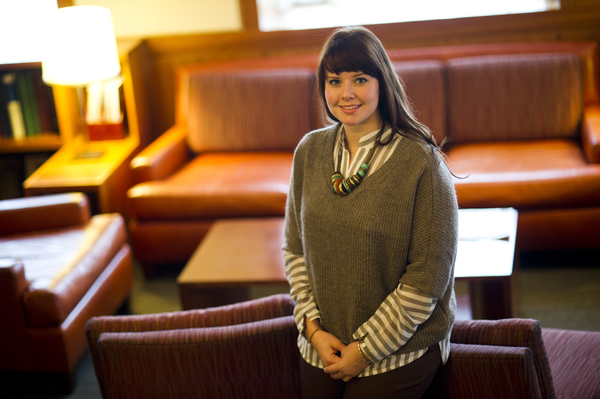Engineering solutions for developing nations

Since graduating in 2011, former Northeastern Civil Engineering student Ann Polaneczky has been working for Partners In Health, a non-profit organization focusing on international health and social justice. Starting with her co-op experience while she was an undergraduate, Ann has been designing a wastewater treatment plant for a teaching hospital in a region in Haiti that has been recently ravaged by cholera. Ann spends about a quarter of her time in Haiti, overseeing the construction of the treatment plant that will be vital for the safe operation of the hospital. Ann’s project highlights some of the differences between working in the developing world versus in the U.S.
Source: News @ Northeastern
Humanitarian projects in developing countries, such as building a potable water system in Africa or a new hospital in Haiti, require developers to consider a unique set of concerns.
“When you’re working in a developing country, you have to approach things completely differently,” said 2011 civil engineering graduate Ann Polaneczky, a project engineer for Partners in Health, a nonprofit international health and social justice organization. “Your approach has to address anthropological and cultural concerns because if you just try to apply what works here in the United States, you’re not going to succeed.”
Polaneczky began working with Partners in Health as a co-op student tasked with designing a wastewater treatment plant for a hospital the nonprofit was building in Mirebalais, Haiti. The country lacks a centralized civil infrastructure system, and the hospital needed help removing its sewage, which if pumped into a river could cause severe medical conditions like cholera.
After graduation, Polaneczky joined Partners in Health in a full-time capacity. Now she visits Haiti for approximately one week each month, overseeing the implementation of her designs in the hospital, which is nearly finished. “It’s amazing to be walking around in your own drawings,” she said.
Over the next six to 12 months, Polaneczky and her co-workers will ensure that the hospital is fully functional, developing systems and processes to guarantee the facility remains capable of serving the health needs of its patients. World leaders including World Bank President Jim Yong Kim and Haitian President Michel Joseph Martelly have noted that the facility’s services are unmatched throughout the nation.
“This hospital will offer critically important services,” Polaneczky said. “It’s the only endoscopy lab in the country, and the hospital has the only neonatal intensive care unit. It’s one of the few places where emergency rooms will be able to perform Caesarian sections and help pregnant women and their children who might otherwise not survive.”
As a Northeastern student, Polaneczky served as president of the university’s chapter of Engineers Without Borders, overseeing development projects in Africa and Honduras. In 2010, the national organization named her one of nine “Emerging Leaders,” citing her work to create infrastructure that changed the lives of people in the developing world.
“These projects are important to me because I can see the impact,” Polaneczky said. It’d be hard to get the same satisfaction from doing something like fixing a sidewalk so that it meets ADA specifications compared to providing water to an entire village or healthcare where it’s needed most.”